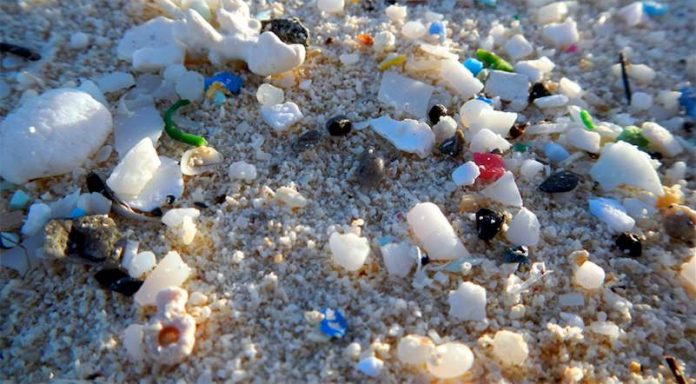Humans bodies are becoming polluted with tiny but dangerous particles of plastic, a groundbreaking international study has found.
Scientists discovered evidence of microscopic plastic particles in the faeces of every person who took part in the research, suggesting they are swallowing them in food.
Plastic in the gut could suppress the immune system and aid transmission of toxins and harmful bugs or viruses, experts believe.
Lead researcher Dr Philipp Schwabi, from the Medical University of Vienna, said: “Of particular concern is what this means to us, and especially patients with gastrointestinal diseases.
“While the highest plastic concentrations in animal studies have been found in the gut, the smallest microplastic particles are capable of entering the blood stream, lymphatic system and may even reach the liver.
“Now that we have first evidence for microplastics inside humans, we need further research to understand what this means for human health.”
The pilot study recruited eight participants from the UK, Finland, Italy, the Netherlands, Poland, Russia and Austria.
It showed that every participant was exposed to plastic by consuming plastic-wrapped food or drinking from plastic bottles.
Particles between 50 and 500 micrometres across of up to nine different plastics were found in faeces samples, the most common being polypropylene (PP) and polyethylene terephthalate (PET).
On average, the scientists found 20 microplastic particles in every 10 grams of stool.
It is estimated up to 5 per cent of all plastics produced end up in the sea.
Once in the oceans, plastics are consumed by sea animals and move up the food chain. Significant amounts of plastic have been detected in tuna, lobster and shrimp.
Food is also likely to be contaminated with plastic as a result of processing or packaging, say the researchers whose findings were presented at UEG Week, the largest meeting of gastroenetrology experts in Europe.
Environmental expert Professor Alistair Boxall, from the University of York, said: “I’m not at all surprised or particularly worried by these findings. Microplastics have been found in tap water, bottled water, fish and even in beer.
“We will also be exposed to particles from house dust, food packaging materials and the use of plastic bottles. It’s therefore inevitable that at least some of these things will get into our lungs and digestive systems.”








